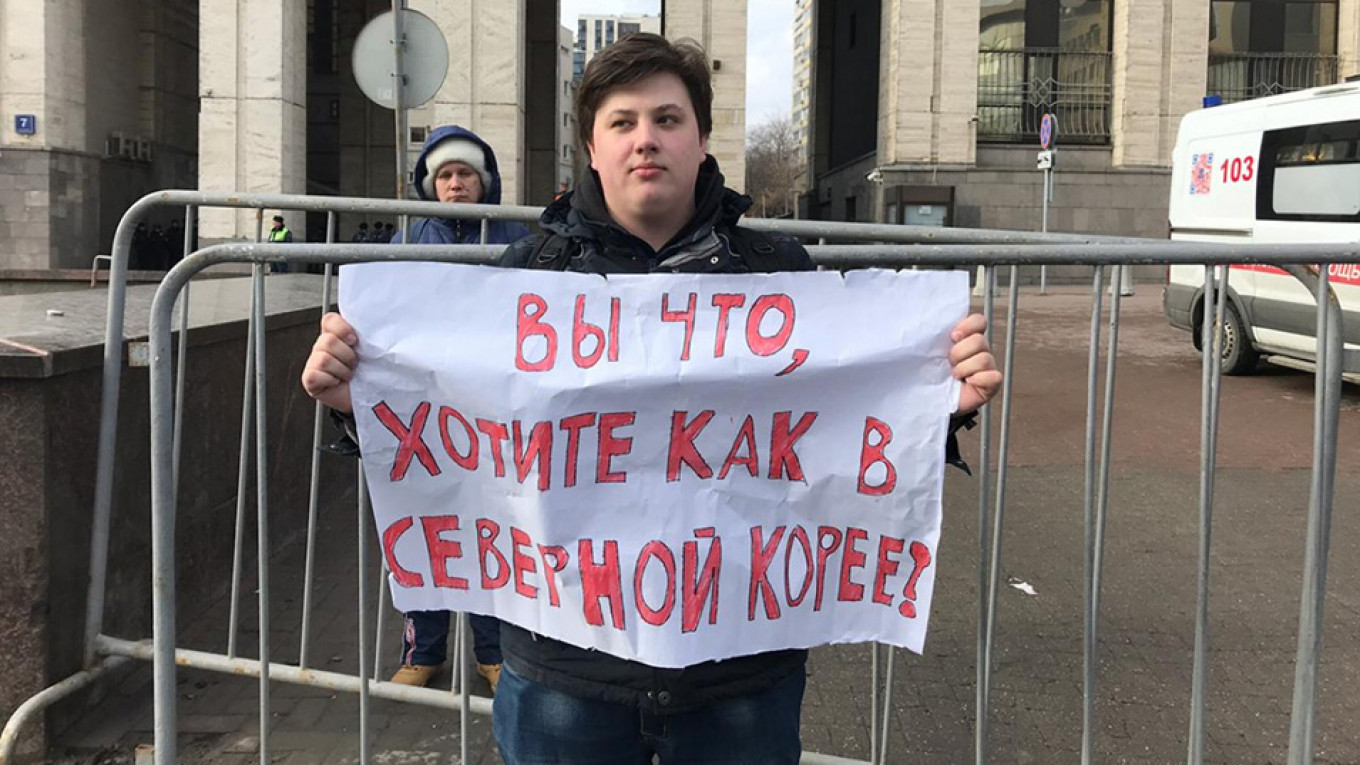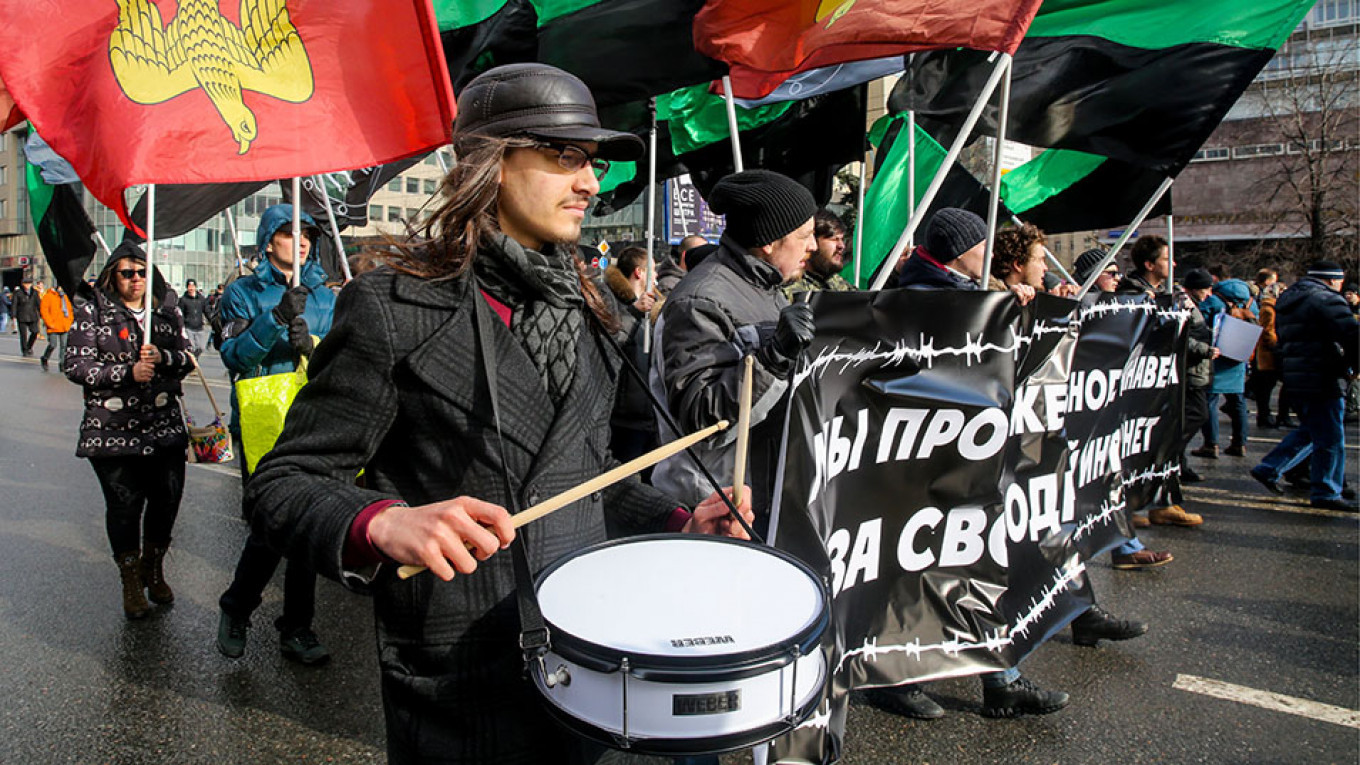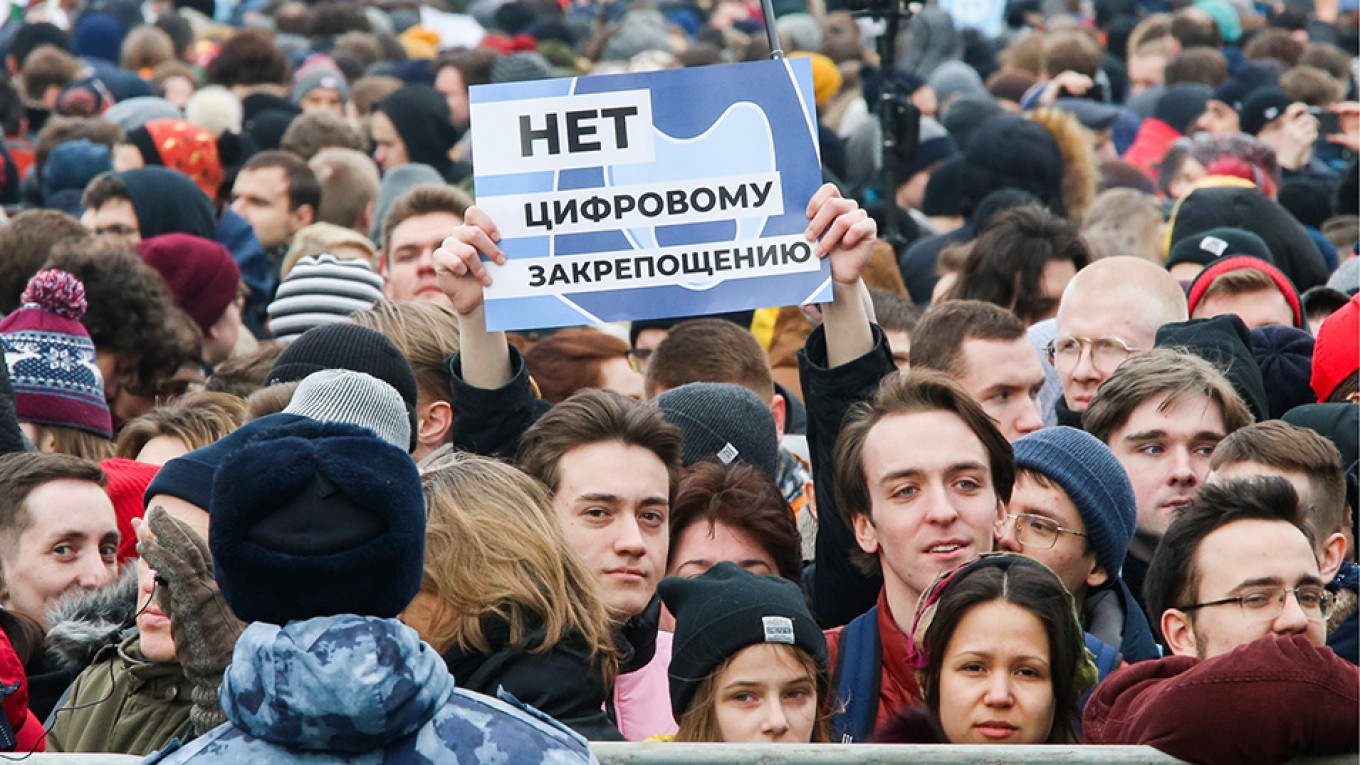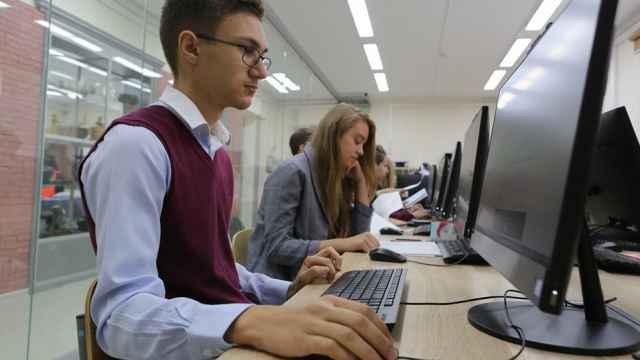Russia’s parliamentarians have unleashed a war against online freedom of speech.
Not only is their crusade unlikely to achieve its goals, but it may also bring even more protesters onto the streets. Russian authorities’ determination to quash any signs of discontent now trumps any other considerations.
But their determination is short-sighted: In the long term, such restrictions will bring social and economic consequences. Is Russia’s elite prepared to deal with them?
While some of these laws have already been adopted and others are still being discussed in the State Duma, the controversial new package of amendments has already prompted dissent in Russian society. For example, when it comes to the draft law on a “sovereign internet” proposed by senator Andrey Klishas and Duma deputy Andrey Lugovoy, independent experts argue that the new proposals are not only economically but also technically impossible to implement.
Meanwhile, rallies against isolating the RuNet from the global internet have been held throughout the country. One such protest in Moscow attracted 15,000 people. Although the march was given prior approval by the authorities (as is legally required in Russia), police nevertheless detained 13 people. It has become obvious that implementing the new amendments will be costly; taxpayers will have to foot the bill for new measures which will weaken their own rights.

In his 1945 article entitled “How We Can Think,” the American engineer Vannevar Bush outlined an early concept of what would become the internet: the Memex proto-hypertext system (a portmanteau of “memory extender”). Since then, the internet has become far more than a “memory extender”; it has become an external structure of human consciousness on a collective and individual level. In this context, any law which provides for state control over access to and behavior on the internet is perceived by many as “thought policing,” an impermissible intrusion into their own consciousness.
The new laws will particularly anger the most active and advanced internet users. These users are more than members of local online communities. They are accustomed, so to speak, to online freedom of movement, and to commercial and cultural exchanges without the limits of state borders and external restrictions.
These people see the Russian state’s latest restrictions as an assault on their very identities, leading one to wonder whether the agencies which enact them are fully aware of the depth of the anger they will encounter in response. If there is one thing which can bring these inhabitants of the virtual world back into the real one and onto the streets, it is an attempt to deprive them of that world.
Ultimately, the “sovereign internet” law has not yet been sent to the president’s desk for signing, meaning that it could be heavily changed or not adopted at all.
This cannot be said of a series of amendments to a law on combating the spread of false information and “disrespectful remarks” toward the authorities online which were signed into law this week. In addition to their obvious role in tightening censorship, these amendments may have another significance: Namely, they reveal the growing mutual resentment between the population and the state.

Obviously, neither the authors of these laws nor their main beneficiaries fully appreciate that even the consideration of such initiatives deepens mistrust between the authorities and the people on whose behalf they claim to rule.
It is amusing to contrast this bleak reality with the recent declarations of Kremlin spin doctor Vladislav Surkov, who painted an over-imaginative picture in which Putinism is the natural ideology of the “deep[ly rooted] Russian people,” and that the “modern model of the Russian state begins with trust and maintains trust.”
Trust, Surkov continued, “marks the fundamental difference with the Western model, which cultivates mistrust and criticism.” The amendments proposed by Klishas and his colleagues prove the exact opposite. In reality, the regime fears civil society and the people it rules. The regime knows that the people do not trust it, and expects that they will have nothing good to say of it in the decades to come.
All that remains is to hope that these regulations meet the same fate as last year’s “Yarovaya Laws,” and amount to nothing. Or at least to hope that they cause as little damage as possible. Otherwise, Russian society will remain locked in a vicious cycle, where increasing pressure from above provokes mass discontent from below which the authorities cannot placate, so they resort to even more repression.
The gap between society and the authorities will widen even more until it cannot be bridged. The most absurd thing of all is that by initiating these new laws, Russia’s rulers are pushing society toward what they have been fearing and trying to avoid for years: yet another wave of mass protests.
A version of this article was originally published in Riddle.
A Message from The Moscow Times:
Dear readers,
We are facing unprecedented challenges. Russia's Prosecutor General's Office has designated The Moscow Times as an "undesirable" organization, criminalizing our work and putting our staff at risk of prosecution. This follows our earlier unjust labeling as a "foreign agent."
These actions are direct attempts to silence independent journalism in Russia. The authorities claim our work "discredits the decisions of the Russian leadership." We see things differently: we strive to provide accurate, unbiased reporting on Russia.
We, the journalists of The Moscow Times, refuse to be silenced. But to continue our work, we need your help.
Your support, no matter how small, makes a world of difference. If you can, please support us monthly starting from just $2. It's quick to set up, and every contribution makes a significant impact.
By supporting The Moscow Times, you're defending open, independent journalism in the face of repression. Thank you for standing with us.
Remind me later.








